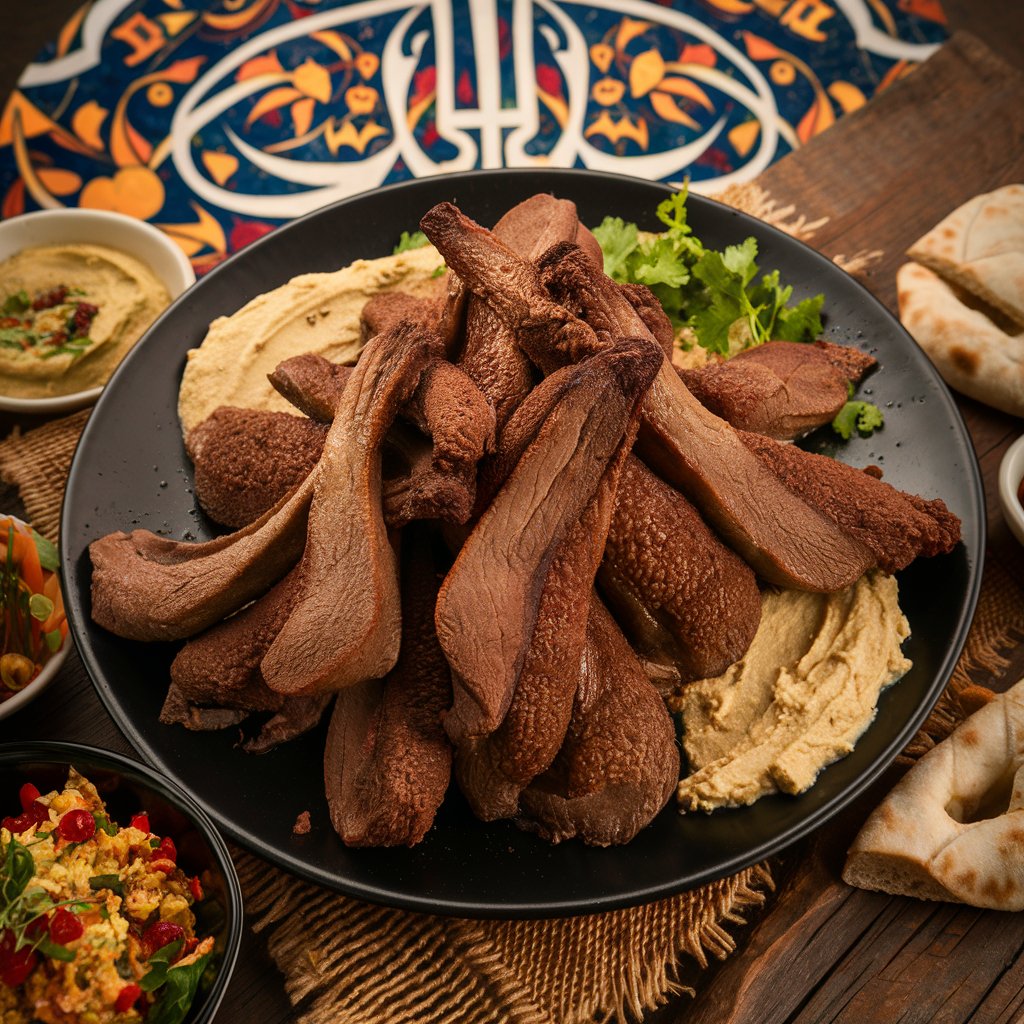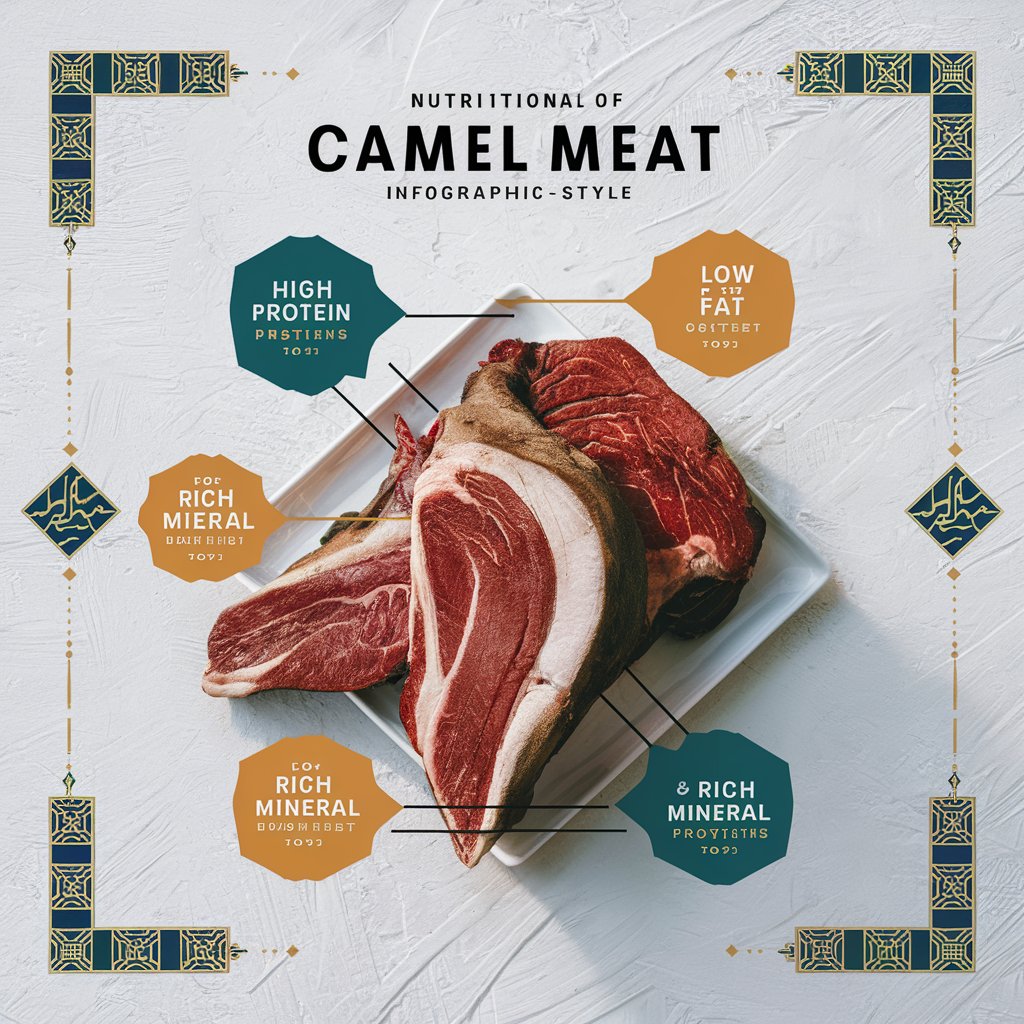Is Camel Meat Halal?
As an expert in Islamic dietary laws and the halal food industry, I have extensively researched the permissibility of consuming camel meat according to Islamic principles. In this comprehensive guide, I will provide an in-depth analysis of the Islamic perspective on camel meat consumption, backed by references from the Quran, hadith, and scholarly opinions.
What is Halal?
Before delving into the specifics of camel meat, it is essential to understand the concept of halal in Islam. Halal is an Arabic term that translates to “permissible” or “lawful.” In the context of food, halal refers to any food or drink that is allowed for consumption according to Islamic dietary laws.
The opposite of halal is haram, which means “forbidden” or “prohibited.” Muslims are required to consume only halal food and avoid anything that is considered haram.
Islamic Dietary Laws
Islamic dietary laws are derived from the Quran and the teachings of Prophet Muhammad (peace be upon him). The Quran provides general guidelines on what is permissible and prohibited for consumption. In Chapter 5, Verse 3 of the Quran, Allah states:
“Prohibited to you are dead animals, blood, the flesh of swine, and that which has been dedicated to other than Allah, and [those animals] killed by strangling or by a violent blow or by a head-long fall or by the goring of horns, and those from which a wild animal has eaten, except what you [are able to] slaughter [before its death], and those which are sacrificed on stone altars, and [prohibited is] that you seek decision through divining arrows. That is grave disobedience.” (Quran 5:3)
This verse clearly outlines the primary categories of food that are considered haram in Islam:
- Dead animals (those not slaughtered according to Islamic guidelines)
- Blood
- Pork and its byproducts
- Animals dedicated to other than Allah
- Animals killed by strangulation, violent blow, head-long fall, or goring of horns
- Animals partially eaten by wild animals (unless properly slaughtered before death)
- Animals sacrificed on stone altars
- Divining arrows (a form of gambling)
In addition to these categories, the Quran also mentions the permissibility of consuming certain animals in Chapter 5, Verse 1:
“O you who have believed, fulfill [all] contracts. Lawful for you are the animals of grazing livestock except for that which is recited to you [in this Quran] – hunting not being permitted while you are in the state of ihram. Indeed, Allah ordains what He intends.” (Quran 5:1)
This verse indicates that grazing livestock, such as cattle, sheep, goats, and camels, are generally considered halal for consumption, with some exceptions that are further clarified in the Quran and hadith.
The Permissibility of Camel Meat in Islam
Now that we have established the basic principles of Islamic dietary laws, let us examine the permissibility of camel meat specifically.
Evidence from the Quran
The Quran does not explicitly mention the permissibility or prohibition of camel meat. However, as mentioned earlier, the Quran does state that grazing livestock, which includes camels, are generally considered halal (Quran 5:1).
Evidence from Hadith
The permissibility of camel meat is further supported by several hadith, which are the sayings and actions of Prophet Muhammad (peace be upon him). One such hadith narrated by Abu Hurairah states:
“The Messenger of Allah (ﷺ) sacrificed a camel on the Day of Eid al-Adha, then turned toward the Qibla, stood up, and said: ‘In the name of Allah, Allah is most great. O Allah, this (sacrifice) is on behalf of Muhammad and his Ummah, in entirety.'” (Sunan Ibn Majah, Book 25, Hadith 3144)
This hadith indicates that Prophet Muhammad (peace be upon him) himself sacrificed a camel during Eid al-Adha, which is a clear indication of the permissibility of camel meat in Islam.
Another hadith narrated by Jabir bin Abdullah mentions:
“We used to eat the flesh of horses and camels but we avoided the flesh of domestic donkeys.” (Sahih Muslim, Book 21, Hadith 4775)
This hadith further confirms that the consumption of camel meat was practiced and considered permissible by the companions of Prophet Muhammad (peace be upon him).
Scholarly Opinions
Islamic scholars have overwhelmingly agreed on the permissibility of camel meat based on the evidence from the Quran and hadith. The four major schools of Islamic jurisprudence (Hanafi, Maliki, Shafi’i, and Hanbali) all consider camel meat to be halal, provided that the animal is slaughtered according to Islamic guidelines.
| School of Jurisprudence | Opinion on Camel Meat |
|---|---|
| Hanafi | Halal |
| Maliki | Halal |
| Shafi’i | Halal |
| Hanbali | Halal |
Conditions for Camel Meat to be Considered Halal

While camel meat is generally considered halal, there are certain conditions that must be met for the meat to be deemed permissible for consumption:
- The camel must be slaughtered according to Islamic guidelines: The slaughter must be performed by a Muslim, who should invoke the name of Allah before slaughtering the animal. The animal’s throat, windpipe, and blood vessels must be severed with a sharp instrument, allowing the blood to drain completely.
- The camel must be healthy and free from disease: Islam emphasizes the importance of consuming wholesome and pure food. Therefore, the camel must be healthy and free from any diseases that may render its meat unsafe for consumption.
- The camel must not be slaughtered in the name of anyone other than Allah: As mentioned in the Quranic verse (5:3), animals dedicated to other than Allah are considered haram. Therefore, the camel must be slaughtered solely in the name of Allah.
- The camel must not be killed by strangulation, violent blow, head-long fall, or goring of horns: These methods of killing animals are prohibited in Islam, as they cause unnecessary suffering to the animal and may render the meat haram.
Nutritional Benefits of Camel Meat
In addition to being permissible for consumption, camel meat also offers several nutritional benefits:
- High protein content: Camel meat is an excellent source of high-quality protein, essential for building and repairing tissues in the body.
- Low fat content: Compared to other red meats, camel meat is relatively low in fat, making it a healthier alternative for those looking to reduce their fat intake.
- Rich in minerals: Camel meat is a good source of essential minerals such as iron, zinc, and potassium, which are important for various bodily functions.
- Potential medicinal properties: Some studies have suggested that camel meat may have potential medicinal properties, such as aiding in the treatment of certain allergies and boosting the immune system. However, more research is needed to confirm these claims.
Conclusion
In conclusion, based on the evidence from the Quran, hadith, and scholarly opinions, camel meat is considered halal for consumption in Islam, provided that the animal is slaughtered according to Islamic guidelines and meets the necessary conditions. Not only is camel meat permissible, but it also offers several nutritional benefits, making it a wholesome and healthy choice for Muslims.
As an expert in the halal food industry, I hope this comprehensive guide has provided you with a clear understanding of the Islamic perspective on camel meat consumption. By following the guidelines outlined in this article, Muslims can confidently include camel meat in their diets while adhering to the principles of their faith.








